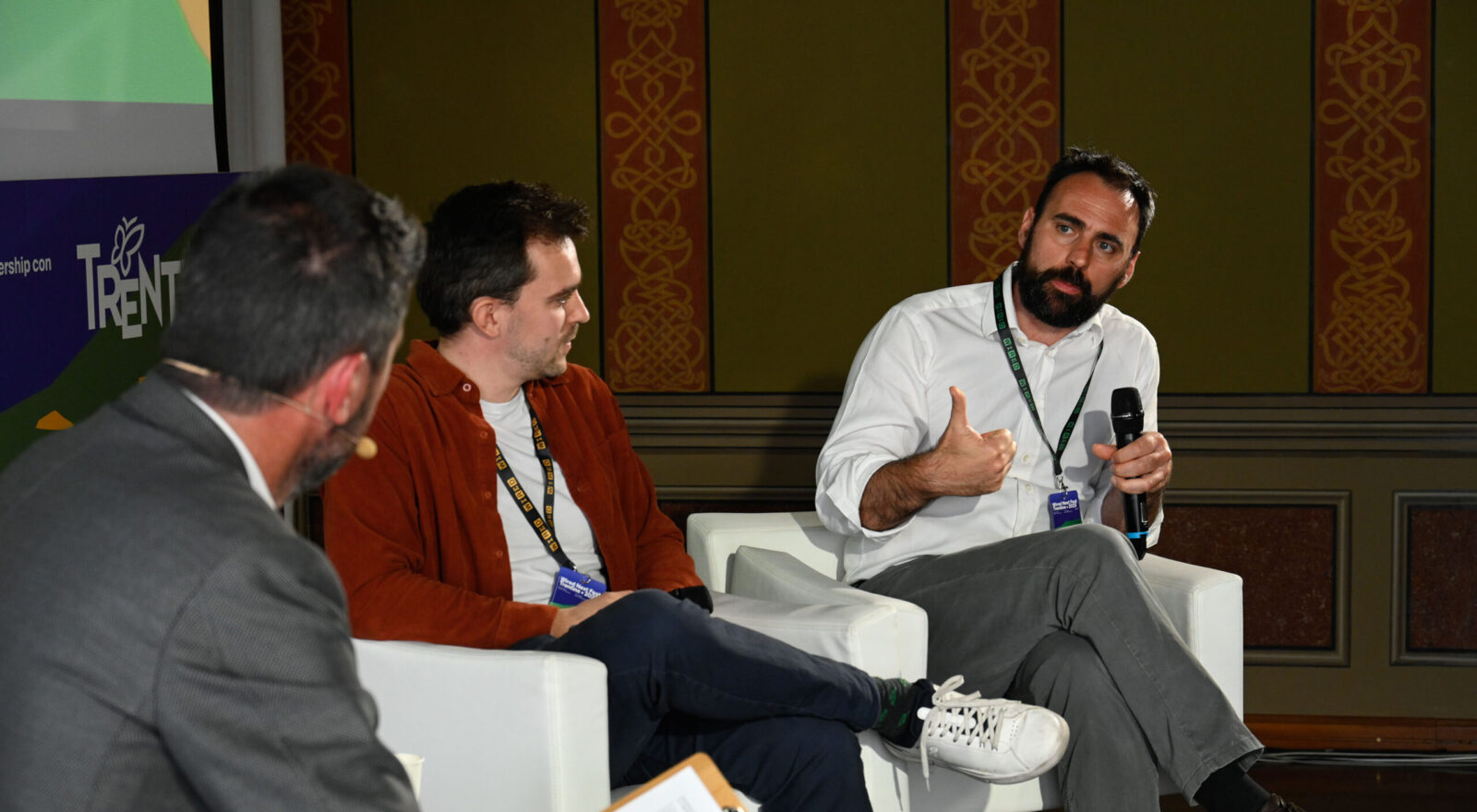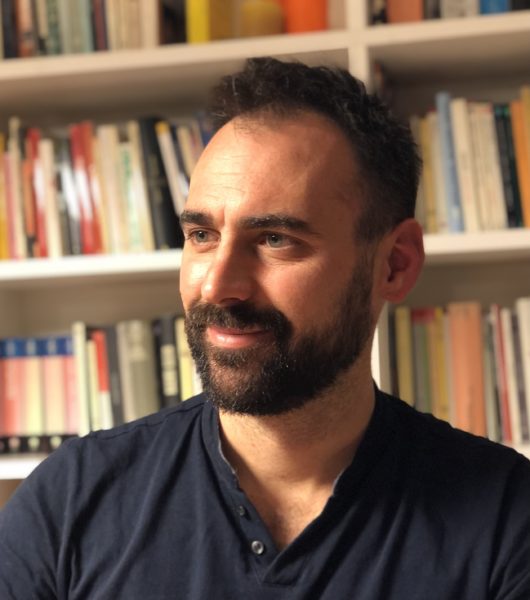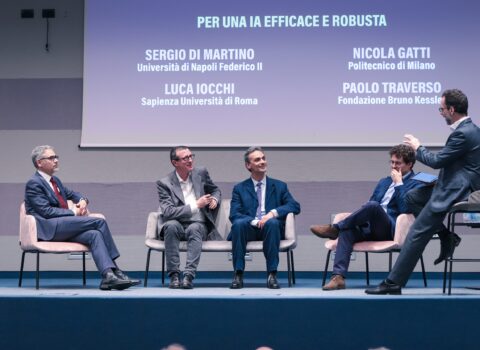
The biggest challenge for generative AI? Education!
Held as part of Wired Next Fest Trentino 2023, "The Rules of the Perfect Algorithm," a diascussion between Marco Guerini, head of the FBK LanD research unit, and Lorenzo Cella, software engineer known to most as the creator of PizzaGpt.
A packed room Sunday, May 7, in Rovereto’s Palazzo del Bene for a fast-paced discussion moderated by journalist Stefano Priolo. The conversation alternated between curious anecdotes and bits of insight to help the in-person audience and those who followed the live stream clearly define certain aspects, touching on three key points.
The first point concerned the very functioning of generative artificial intelligence, between theoretical aspects to be clarified and drifts to be contained, particularly with reference to fake news and other emerging phenomena.
Guerini described the statistical model of language on which current technologies are based. Using neural networks, given a string of text, one is able to predict the next most likely word by performing a calculation for each word in the dictionary. That done, the next word is chosen until the sentence is completed step by step.
In particular, the power of the new models in operation stems from the following key elements: neural networks now consist of tens of billions of parameters; the quantity and quality of data that can be processed is ever increasing; one is now able to teach not only to predict but also to receive instructions; thanks to so-called “reinforcement via human feedback,” it is possible to refine the result by involving human operators in choosing among several possible automatic responses suggested by the system. All of this is the iceberg underneath the most appropriate response that conversational agents propose to us in no time that makes them look intelligent.
Cella shared the experience of Pizzagpt, an interface that consults Open AI’s A.P.I. allowing ChatGPT to continue to be used in Italy as well despite the temporary blocking of the national website following the intervention of the Italian Data Protection Authority. The statistics reported testify to the great success of the initiative, with peaks of 50 thousand users per day and one million registered visitors this month.
The second aspect touched upon was fake news and the possibility of combating them precisely with the help of AI
Guerini introduced the logic by which counter-narratives are built in his research group at FBK, thanks to generative algorithms specialized on specific tasks, e.g., learning how to respond to fake news or online hate, and how to do so with kindness. Importantly, to do this we do not just launch bots online but help factcheckers, activists and practitioners, e.g., of ngo operators, cope more effectively and efficiently. In this way, the AI system with its suggestions speeds up and improves the work of humans, augmented humans, not humans replaced by technology.
The last point, but not least, was the media cyclone, the hype that has placed AI at the top of the public discourse’s attention in recent months. Prompted by the moderator, Guerini highlighted how this great attention represents an opportunity because there is a need to talk about it and especially to promote literacy actions, to work on education about these technologies at all levels, that are so present and that are destined to be increasingly relevant in our immediate future.
“Beyond regulatory efforts, these technologies,” Guerini said, “will still be part of our lives. They should be taught in schools, in China AI is already a subject of study in schools. At a time in history when the swirling and perceptible refinement that can be seen even from week to week concerns not only texts but also voice, images and video, the only way to make it much harder for lay people to be fooled will be to make them more aware, and in order to achieve this social change, an unprecedented effort in education is needed.”





